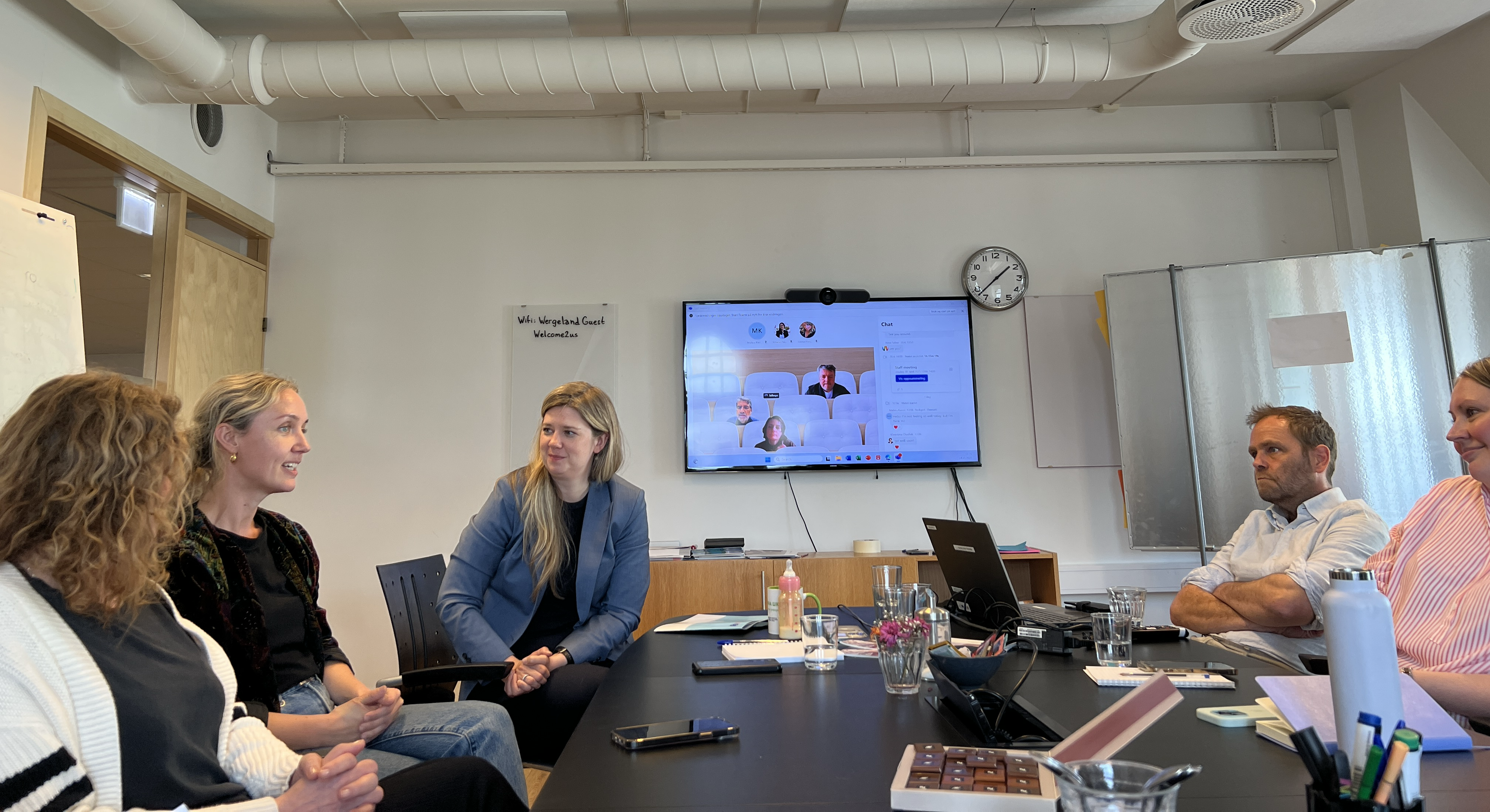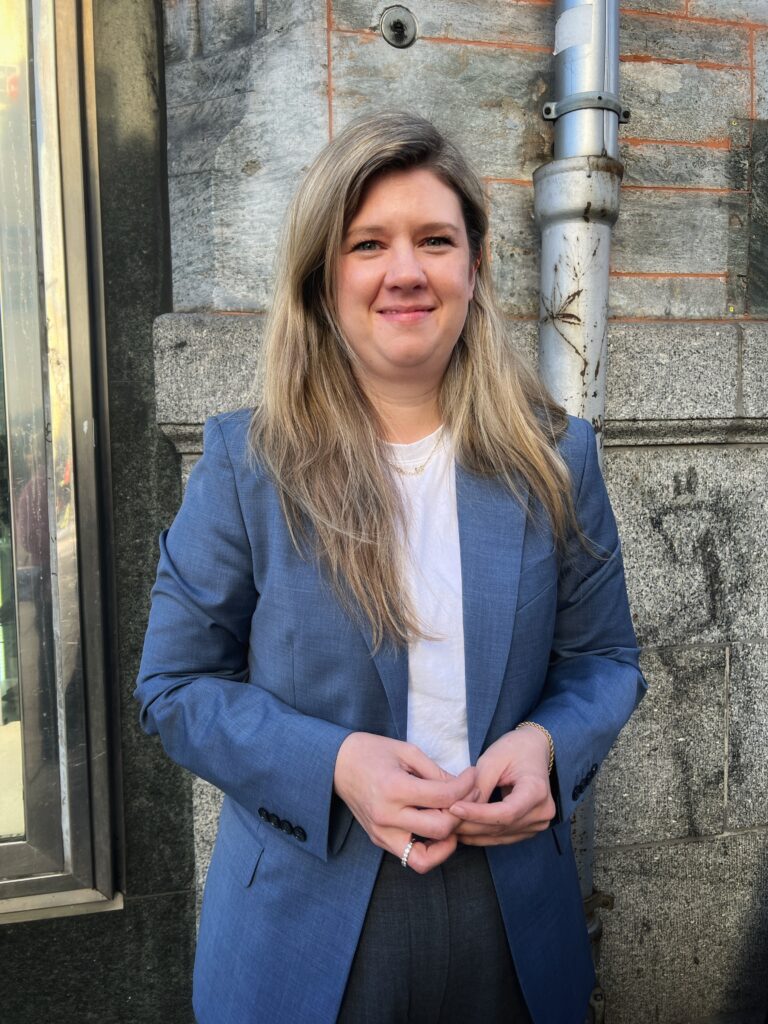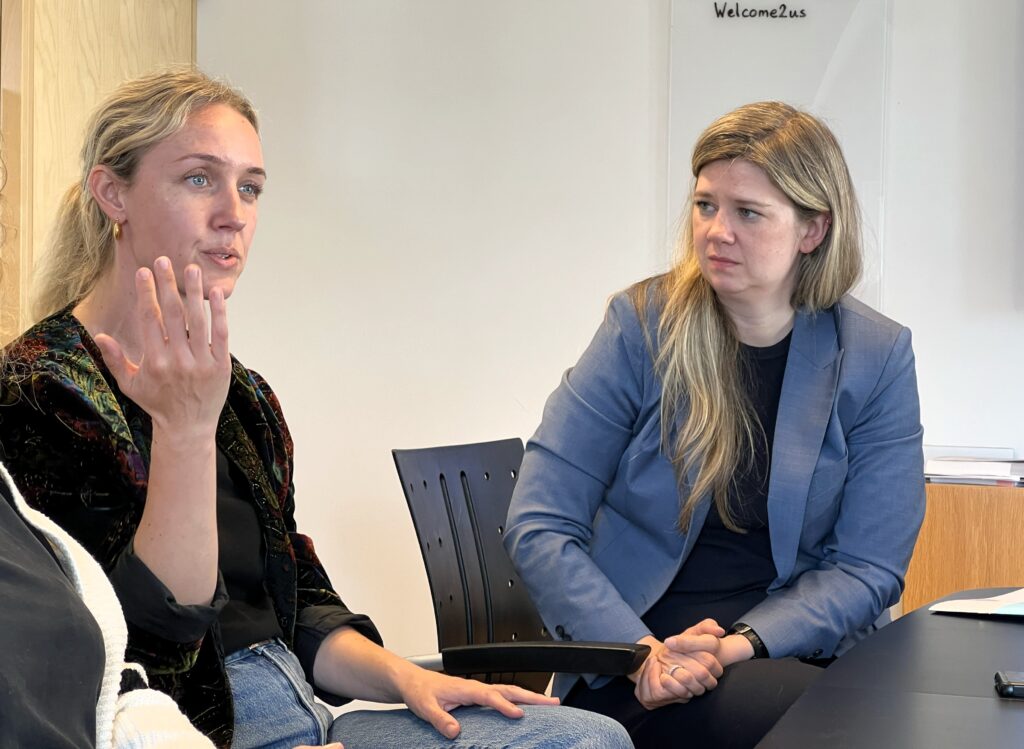Sofie Høgestøl New Chair of the Board

“It was a great honour to be asked. In the turbulent world we live in today, working with democratic education for young people feels deeply meaningful,” says Sofie Høgestøl, the new Chair of the Board at the European Wergeland Centre (EWC).
Sofie is an Associate Professor at the Department of Public and International Law at the University of Oslo, where she also earned her PhD in law. She has particular expertise in international criminal law and human rights, and has previously worked at the Norwegian Centre for Human Rights, the Scandinavian Institute of Maritime Law, and at the Khmer Rouge Tribunal in Phnom Penh.
Having previously served as a board member, Sofie succeeds Professor of Philosophy Inga Bostad as Chair.
“It’s an exciting time to join as Chair, because the Wergeland Centre is doing so many important things and has experienced significant growth in recent years. I just want to support that positive momentum and help ensure that the great work being done continues and expands,” she says.
Sofie warns that democracy is facing serious challenges in the years ahead. Democratic systems are under mounting pressure from authoritarian forces that exploit both the slow, deliberative nature of democracy and the ongoing transformation in how we communicate.
“The way we communicate has changed rapidly the last ten years. We are right now in the middle of the revolution of communication. We believed that social media was amazing, and would help spread democracy and raise marginalised voices. No one talks like that anymore. We didn’t understand the consequences of moving so much of the deliberative process and the public debate online.”

Sofie emphasises that democracy demands active participation and is not something that can be taken for granted. She believes society has perhaps forgotten this in recent decades, with many treating democracy as a final destination—once you’ve ‘parked the car,’ you’re done. But in her view, democracy must be continually practised. Therefore, it is essential to focus on equipping children and young people to become active citizens—something that must begin in schools.
“When I started studying ten years ago, I never imagined we were actually entering a period of democratic decline. If we go back another ten years, there was so much optimism and belief that democracy was the only way forward, and that all countries would eventually follow. But now we see that the past ten to fifteen years have been marked by a democratic recession. The balance of power is shifting toward authoritarian actors, and even countries we thought were immune are showing their vulnerability. In that context, education remains one of the few ways to reach everyone.”
Sofie believes it is important that young people today gain a deeper understanding of democratic principles than she herself had as a child.
She explains that she grew up with a simplified, idealized version of democracy – a sort of “Disney princess version” where everyone agreed that democracy was inherently good. Today, we are witnessing authoritarian forces gaining ground both in Europe and globally, but then it is important to remember that, despite its occasional frustrations, democracy is still far preferable to alternative forms of governance marked by corruption and abuse of power.
Despite being new in her role as Chair, Høgestøl has already met with the Secretary General of the Council of Europe, Alain Berset, during his visit to Oslo in March 2025.
“He was intelligent and witty, but also clearly affected by the gravity of the current global situation and the immense responsibility resting on the Council of Europe. The Council hasn’t been this relevant since it was founded. He was genuinely interested in the Centre’s work—what countries we work in and what methods we use,” she says.
FOTO: EWC’s Acting Executive Director Ingrid Aspelund with Chair Sofie Høgestøl

Sofie is excited to contribute to strengthening the Centre’s position as an expert in democracy and human rights education, and in turning theoretical goals into practical solutions.
“I went back and forth on whether I wanted to be an academic or working in the field like I did in Cambodia. That’s why I’m so happy to be working with all of you and learning from you—so I can have a bit of both,” she smiles.
Sofie believes that investing in education for democratic citizenship and focusing on children and young people is the long-term solution to the many threats facing Europe’s democracies.
“This is not the time to give up. This is a critical moment for democracies to come together,” she says.